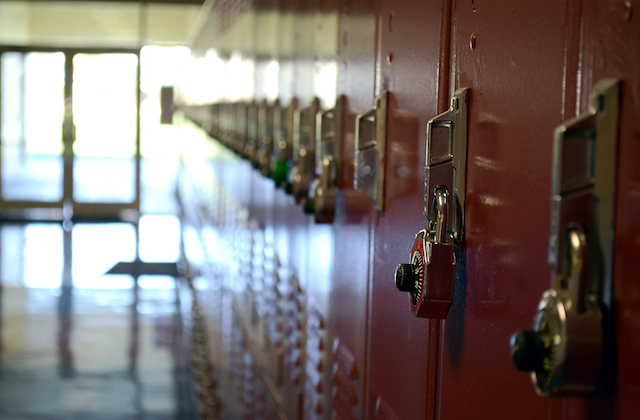It’s not news that Missouri’s school-to-prison pipeline is booming. In 2015, the state was ranked number one in suspensions for Black elementary kids. But a new report from the American Civil Liberties Union (ACLU) of Missouri shows that Black students in the state—especially those with disabilities—are punished more frequently and severely than their peers across the board.
Released today (October 12), “Missouri’s Pipeline of Injustice: From School to Prison” taps data from the U.S. Department of Education’s Office for Civil Rights, the Missouri Department of Elementary and Secondary Education, the Missouri School Resource Officers Association and Missouri Uniform Crime Reporting to uncover the factors that allow the pipeline to thrive.
Key findings:
- Black students are 4.5 times more likely to be suspended than their White counterparts.
- Black students with disabilities are three times more likely to be suspended than White students with disabilities.
- Black boys are subjected to out of school suspensions nearly four times more often than White boys.
- Black girls are six times more likely to serve an out of school suspension than their White counterparts.
- Black students are nearly twice as likely to be hit in school than Whites; Missouri is one of 19 states that permit corporal punishment.
“We must take actions at every level to end Missouri’s school-to-prison pipeline,” Sara Baker, ACLU of Missouri’s legislative and policy director, said in a statement. “This report is just the beginning of a long-term, focused effort to make sure our children have an equal education and brighter future.” That effort includes a parent advocacy toolkit that can be downloaded here.
The report also provides recommendations for students, caregivers, school districts, legislators and law enforcement officers, including:
- Parents: “Use available resources, such as data from the federal Office for Civil Rights, to learn about disparities in discipline at your child’s school.”
- Students: “Learn what rights apply when students interact with law enforcement and with school administration.”
- Disability rights advocates: “Learn how the appeal process works at school, in case a student with a disability is subjected to disproportionate discipline.”
- Educators: “Increase use of inclusionary (vs. exclusionary) discipline with an eye toward restorative practices.”
- School board members: “Fund mandatory teacher anti-bias trainings to educate about trauma- informed practices, racial/economic equity, and issues for disabled students.”
- Legislators: “Require school law enforcement officers or security personnel to be trained in child development, as well as require all contracts between school districts and security personnel to establish that security personnel are not responsible for school discipline unless the violation poses an immediate and real danger.”
Read the full report here.
